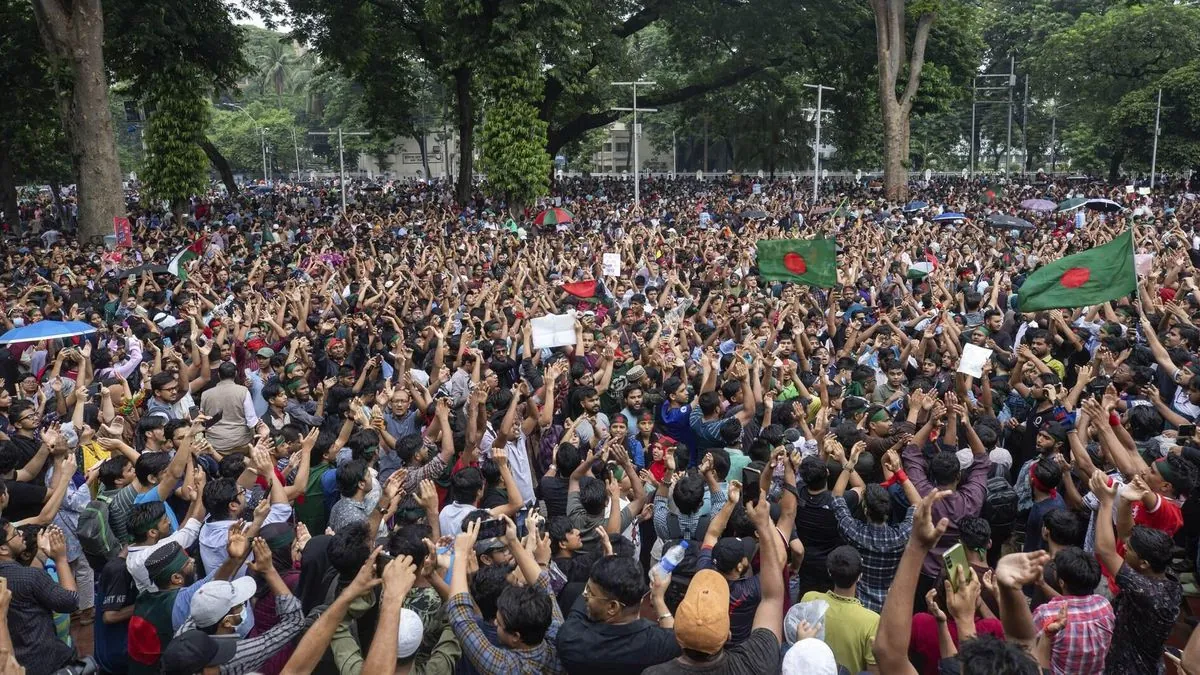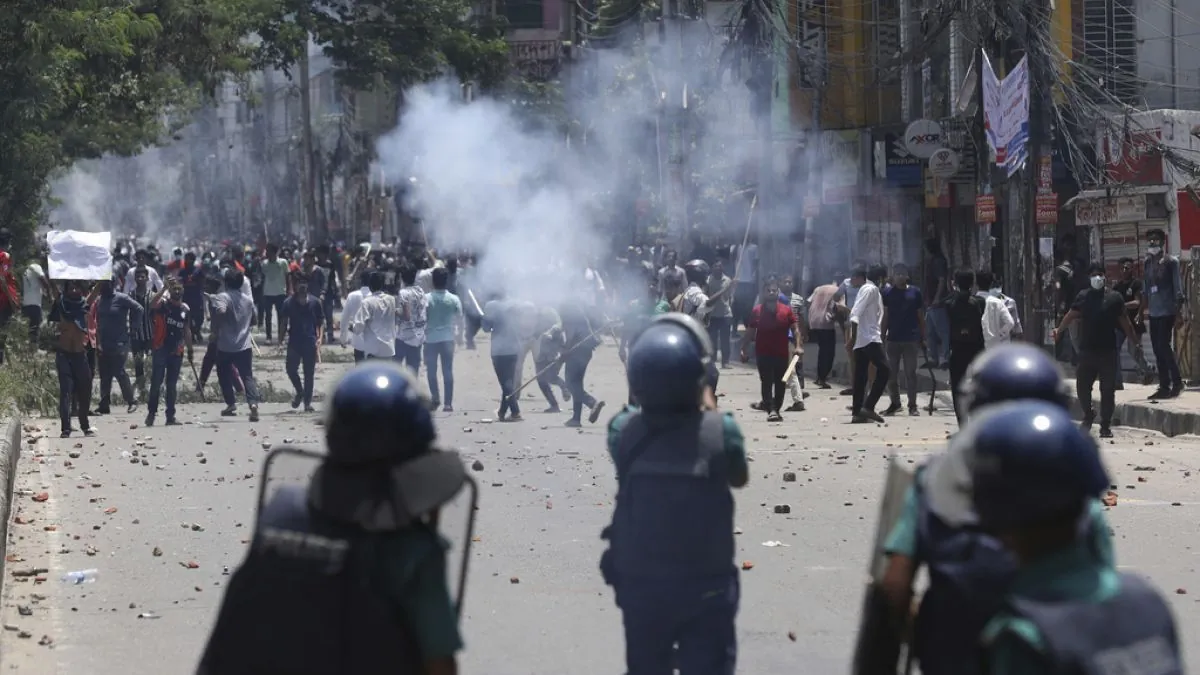Bangladesh PM Resigns Amid Unrest, Nobel Laureate Proposed for Interim Role
Bangladesh's Prime Minister Sheikh Hasina resigns amid violent protests. Nobel laureate Muhammad Yunus proposed to lead interim government. Military takes control, promising new elections amidst concerns for stability.

In a significant political shift, Sheikh Hasina, Bangladesh's long-serving Prime Minister, resigned and left the country on August 5, 2024, following weeks of intense civil unrest. The departure came as demonstrators defied military-imposed curfews, culminating in the occupation of her official residence.
The protests, initially sparked by dissatisfaction with government job quotas, escalated into a broader challenge to Hasina's 15-year administration. Attempts to suppress the demonstrations through school closures, curfews, and military intervention resulted in approximately 300 fatalities, further fueling public discontent.

In response to the crisis, student protest organizers have proposed Muhammad Yunus, the 2006 Nobel Peace Prize recipient, to lead an interim government. Yunus, known for his pioneering work in microlending, has been a vocal critic of Hasina's regime and faced legal challenges during her tenure.
"Yunus would be willing to serve, considering the present situation of the country."
The military, under Gen. Waker-uz-Zamam, has temporarily assumed control, pledging to facilitate new elections. This intervention reflects Bangladesh's complex political history, which has seen over 20 coup attempts since gaining independence in 1971.
The aftermath of Hasina's resignation has been marked by both celebration and violence. Reports indicate at least 109 fatalities, including 14 law enforcement officers, in the days surrounding her departure. Protesters targeted government buildings, media outlets, and symbols of Hasina's administration, leading to widespread property damage and looting.
Bangladesh, one of the world's most densely populated nations, now faces uncertainty regarding its political future and economic stability. The country has made significant strides in recent years, including rapid economic growth and improvements in poverty reduction and health indicators. However, it continues to grapple with challenges such as corruption, climate change vulnerability, and the ongoing Rohingya refugee crisis.
International observers, including the United Nations, have called for a peaceful and inclusive transition of power. The coming weeks will be crucial in determining Bangladesh's path forward, as the nation seeks to balance political reform with maintaining the progress achieved in recent years.
As Bangladesh navigates this critical juncture, the world watches closely to see how this South Asian nation of over 160 million people will shape its democratic future and address the underlying issues that led to this dramatic change in leadership.


































